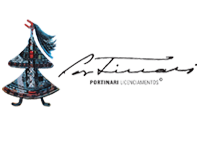General Info
Family background: low class urban bourgeois; from Academia Militar to troop in Rio Grande do Sul; beginning of political affiliation with Aliança Nacional Libertadora; the democratic and the anti-fascist profile of the Aliança; repression comes down hard on progressive forces following the Intentona Comunista in 1935; arrest and transfer to Rio de Janeiro; getting acquainted with other intellectuals at the penitentiary; first exposure to the Communist Party and the foundations of the Marxist doctrine; contradictions and peculiarities of the 1930s; Spanish Civil War sparks worldwide democratic consciousness; joins a group of volunteers in Brazil to fight in Spain; flees for France and faces two years in a concentration camp; escapes from the camp; brief period living legally; joins the Resistence; leads immigrant volunteer force in the south of France; military track record comes in handy; marriage to Resistence member; Association of the Resistence Veterans; reassuming ties with Brazil; meeting Portinari for the first time in Paris, in 1946; families get acquainted; the increasing postwar involvement of the Communist Party in both arts and culture; close relationship with the Portinaris; Apolônio as Portinari's interpreter; Portinari grows tense and pessimistic; the car ride so Apolônio and Portinari could rush over to meet up with Maurice Thorez; Portinari proud of his political ties; hardship in postwar Paris; Apolônio unaware of Cícero Dias' campaign against Portinari; Picasso; the French leftists assured of Portinari's political inclinations; communist presence strongly felt within the socialist French government; the new "Tratado de Tordesilhas"; Marshal Plan "invites" all communists to withdraw from European governments; staying in France becomes difficult; Renée Carvalho; return to Brazil with the Portinaris; in 1955 Apolônio meets a Portinari disenchanted with the Communist Party; friendly ties cut off due to the Communist Party rules; clandestine existence as an aggravating factor; the humanistic issue on a par with the political and social issues; political involvement hindering personality; the issue over party relationship with intellectuals; connecting with the Italian Communist Party; the importance of confrontation with young Communist Party non-members; from 1959 to 1962 member of the Communist Party educational commitees; self-criticism for having cut off friendly ties; Portinari's bitterness and isolation touch Apolônio.
























































